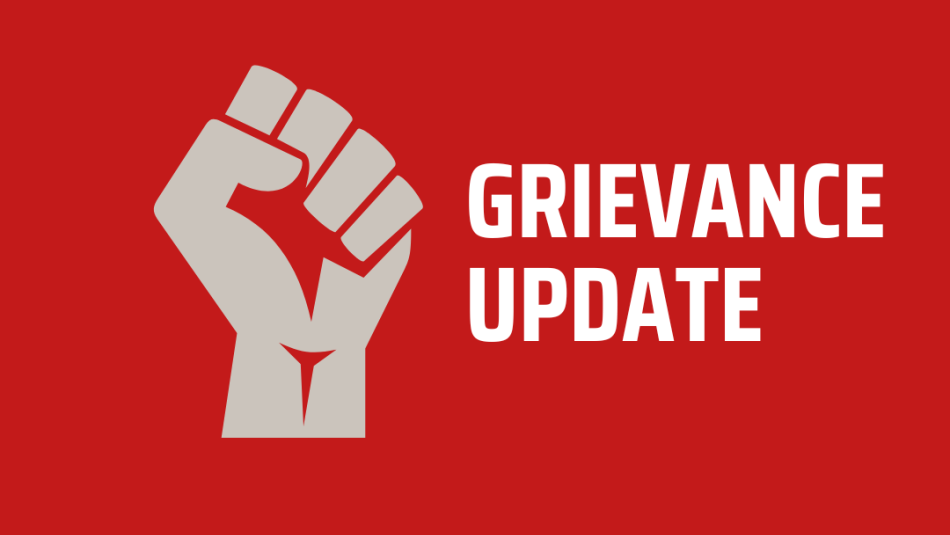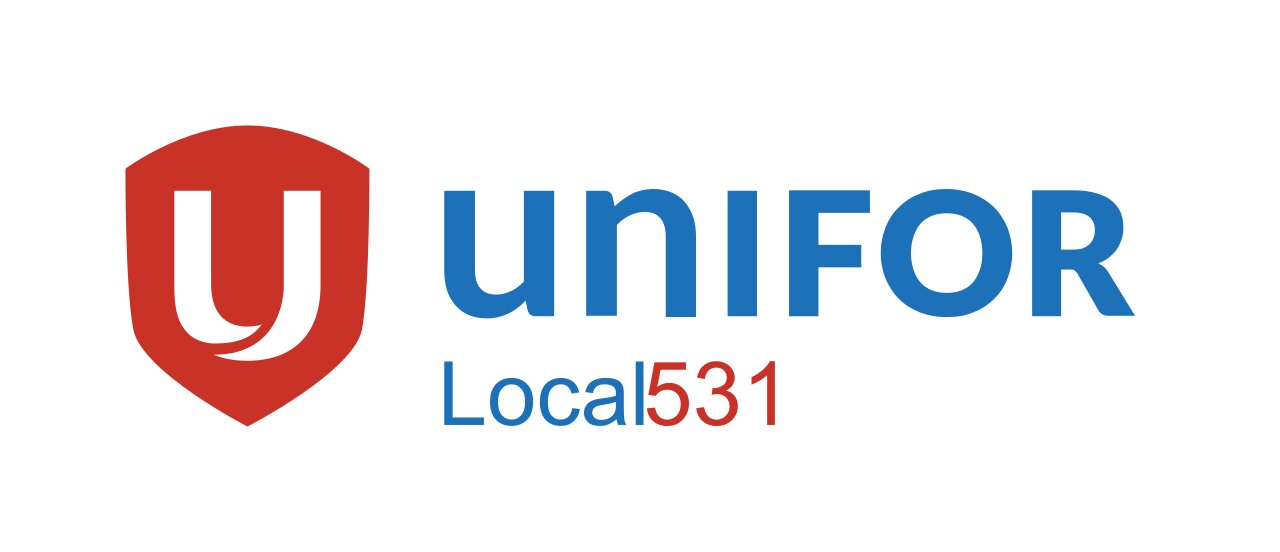Share

Each month, your union works hard behind the scenes to protect your rights, uphold the Collective Agreement, and ensure fair treatment in the workplace. If you believe your rights under the Collective Agreement have been violated, reach out to your local rep by clicking on this link and navigating to your base listed on the left hand side. Here’s a snapshot of our grievance activity for the month of April.
By the Numbers
- Step 1 Grievances Filed: 2 -1 short term suspension (filed to a Step 2 in May), 1 status change violation
- Step 2 Grievances Filed: 5 - probationary failures
- Grievances Resolved Informally (Pre-Step 1): 0
- Active Grievances Proceeding to Arbitration: 3 (filed in 2024)
- Grievances Won: 0
Common Themes
- Probationary Failures: While the employer has the exclusive right to discipline or terminated a probationary employee under Article 10-1.03 of the Collective Agreement, that right isn’t without limits. The union may challenge a probationary termination if there is evidence the decision was made arbitrarily, discriminatorily, or in bad faith—the only three grounds on which an arbitrator has jurisdiction during the probationary period. It’s important to understand that the burden of proof lies with the union. We must demonstrate that the company’s decision meets one of these three thresholds. Almost always, probationary terminations are based on issues related to reliability or technical performance, which are assessed closely during the probationary period. The union may choose to challenge a probationary failure to safeguard fairness, even when the odds aren't in our favour.
- Skipped Disciplinary Steps: Discipline in our workplaces is meant to follow progressive steps, starting with a verbal warning, then written warning, a short term suspension, a long term suspension and finally, termination. When the company skips steps without prior discipline, the union challenges that decision to ensure fairness and consistency, due process and protection from unjust discipline. That doesn’t mean every case must follow every step because serious misconduct may warrant faster escalation. But when steps are skipped, the union will file a grievance to ensure fair treatment has been applied. We don't protect bad behavior but we will protect your rights and the integrity of the process.
- Procedure and Process Failures: Even when the outcome of a situation seems minor, the process matters especially when it comes to our members rights in the CBA. When the company fails to follow the procedures outlined in the CBA, the union will file a grievance to protect the integrity of the agreement and the rights of all members.
Successes to Celebrate
We’re proud to report that the Step 1 Policy Grievance we filed in YVR resulted in a process change. It was identified that the IT program used to grant status changes failed, resulting in a status change granted out of seniority order (Article 13-3 Filling of Status Changes Without a Vacancy). By identifying this error, we were able to push the company to utilize a different program to ensure future status changes were processed correctly.
Challenges We’re Tackling
One of the most persistent and difficult issues facing our union right now involves discipline and probationary failures related to reliability and not following SOP when processing guests' PNRs. These cases make up a significant portion of the grievances we see and they’re some of the hardest to defend. When it comes to reliability, the facts are often straightforward: missed shifts, late call-ins, or repeated patterns of absence. These are typically well-documented by the employer, and unless there are mitigating circumstances, it becomes difficult for the union to successfully argue that the discipline or termination was unjust. For probationary employees, the challenge is even greater.
The same applies to discipline involving PNR-related errors. These often stem from members not following established SOPs—for example, mishandling a booking, changing a reservation incorrectly, or failing to ensure entry requirements are met. The company treats PNR errors seriously because they impact the customer experience, operational efficiency, and regulatory compliance. If the SOP exists, has been communicated, and the member deviated from it, it's challenging for the union to argue the discipline was unwarranted—especially if there is a pattern or previous coaching on file.

